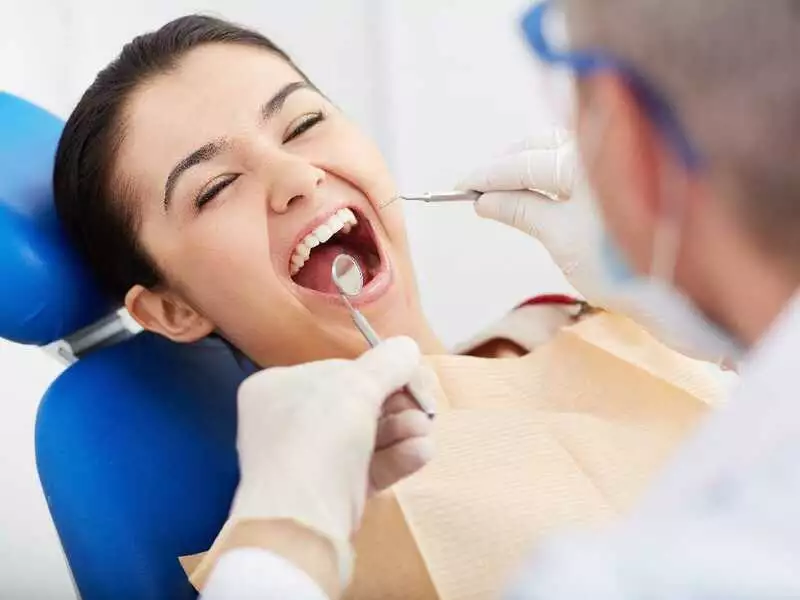The dental treatment of a patient with diabetes requires proper knowledge and care on the part of the dentist. Also, the patient should be properly acquainted with his/her condition and, most importantly, have stabilised sugar levels. Diabetes can have a negative impact on oral hygiene (e.g. fungal infections), which is why it is important to check the state of the teeth and oral cavity.
Very often, oral problems are one of the complications of diabetes. Diabetics are much more likely to struggle with:
- periodontal disease;
- fungal infections (a result of glucose in the saliva. The problem is exacerbated by smoking and the use of removable acrylic restorations);
- tooth abscesses
- thrush;
- oral ulcers.
Important! Diabetic patients should visit the dentist 4 times a year.
Diabetics quite often experience symptoms of dryness and burning in the mouth. The salivary glands do not work properly - they do not secrete an adequate amount of saliva, which is a kind of natural barrier for the teeth and gums against the influence of pathogenic bacteria (removes food residues from between the teeth and prevents the development of caries).
Dentists and diabetic treatment
A patient diagnosed with diabetes who goes to the dentist must absolutely inform the dentist of the disease, as well as the medication they are taking.
Important! Informing the dentist about the disease has a significant influence on the choice of treatment methods, especially in the case of unbalanced glycaemia.
Many dentists are concerned about the diabetic patient - they are concerned about a sudden drop in blood sugar levels (as a result of stress), syncope and other complications, especially during more serious procedures in which anaesthetics must be administered.
Important! The fear of hypoglycaemia accompanies not only the dentist, but also the patient.
According to specialists, reviewing the currently available methods of treating diabetes mellitus (metfomine, as well as the new anti-diabetic drugs SGLT-2, GLP-1 and incretin drugs), the likelihood of hypoglycaemia is extremely low.
Important! The risk increases with treatment with intensive insulin therapy or older generation drugs (sulphonylurea derivatives).
However, even if the patient's glycaemia rises, this should not be a cause for concern - the values will fall after the visit.

photo: panthermedia
Every dental surgery should be equipped with rapidly absorbed glucose (e.g. tablets, glucose gel). Prior to the procedure, the patient should measure his or her blood glucose on his or her own glucose meter and when the result is between 120 and 160 mg/dl then preparation for the procedure is appropriate. In addition to blood glucose levels, it is also worth considering the length of the procedure and the time afterwards when the patient will not be able to eat or drink.
Hypoglycaemia occurs when the sugar concentration is below 70 mg/dl. The management of such a case involves the administration of rapidly absorbed glucose (e.g. gel, juice, sweet drink, sugar cubes).
Important! A patient with diabetes should undergo dental treatment during a period of good diabetes compensation.
A diabetic going to the dentist should be after a meal and taking diabetes medication.









